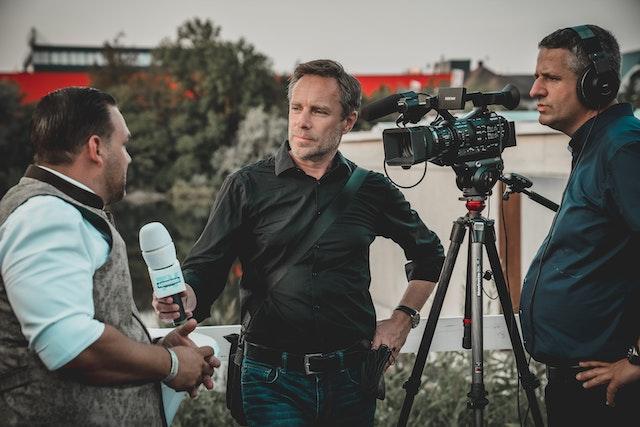How Can You Become a News Anchor in Journalism?

Becoming a news anchor in journalism requires a combination of education, experience, and professional development. It also requires a strong understanding of current events, excellent communication skills, and the ability to think on your feet.
Here are some steps you can take to become a news anchor in journalism:
1. Get a degree in journalism or related field
A bachelor’s degree in journalism or a related field, such as communication or media studies, is typically required for entry-level news anchor positions. During your studies, you should focus on developing your writing, research, and public speaking skills. You may also want to consider completing internships or job shadowing opportunities to gain practical experience in the field.
2. Build your resume and portfolio.
As you progress through your education and gain experience, it’s important to start building your resume and portfolio. This can include writing samples, video clips of your work, and any awards or accolades you’ve received. Having a strong resume and portfolio can help you stand out to potential employers and demonstrate your ability to handle the responsibilities of a news anchor.
3. Start applying for internships and entry-level positions.
Once you have completed your education and have a strong resume and portfolio, you can start applying for internships and entry-level positions in the journalism industry. These positions may involve working behind the scenes, such as research or writing, or may involve on-air work, such as reporting or hosting a show.
4. Build your network and seek out mentors.
As you begin your career in journalism, it’s important to start building your network and seeking out mentors who can provide guidance and support. This can include professionals in the industry, professors or mentors from your education program, or colleagues you’ve worked with in the past. These individuals can provide valuable advice and introduce you to new opportunities in the field.
5. Continue learning and developing your skills.
The journalism industry is constantly changing, so it’s important to stay up-to-date on the latest trends and techniques. Consider taking additional courses or attending professional development workshops to keep your skills sharp and increase your knowledge of the industry.
6. Be persistent and patient.
Breaking into the journalism industry can be competitive. It may take time to land your first job as a news anchor. It’s important to be persistent and continue applying for positions, even if you don’t get the job right away. Remember that it takes time and hard work to build a successful career in journalism, and every opportunity you have to gain experience and build your skills is valuable.
The Best Qualities of News Anchors
In addition to the steps outlined above, there are a few key qualities that are important for a news anchor to possess:
- Strong communication skills: As a news anchor, you will be responsible for delivering information to a wide audience. So, it’s essential that you have strong communication skills. This includes being able to speak clearly and concisely, and being able to effectively convey information to your audience.
- Adaptability: As a news anchor, you may be called upon to cover a wide range of topics, from local news to international events. It’s important that you are able to adapt quickly and be able to effectively communicate information on a variety of topics.
- Confidence: As a news anchor, you’ll be the face of the news program. And it’s important that you exude confidence on camera. This doesn’t mean that you need to be overbearing or arrogant, but rather that you should be comfortable and self-assured in your delivery.
- Objectivity: As a news anchor, it’s important that you remain objective and unbiased in your reporting. This means presenting the facts as they are, without injecting your personal opinions or biases into your reporting.
Check out John’s recent appearance on Shayna Weldon’s podcast episode.
We go over questions like:
“What does success look like for you?”
“Do you feel you reached success?”
“How did you make a stand for yourself and your career at an early age?”


